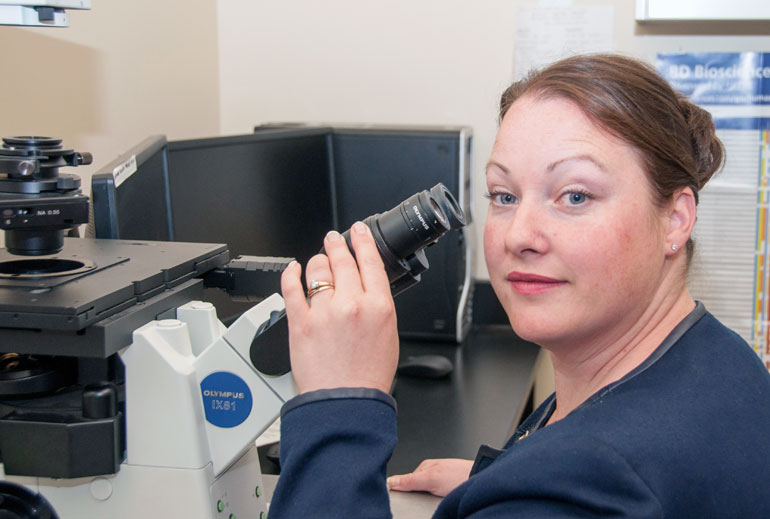
UBC biology associate professor Deanna Gibson says some fats are getting a bad rap and can actually help protect us from inflammatory diseases.
UBC research shows that some of the fats we consume are getting a raw deal when it comes to deciding what’s good for us.
Long thought of as the bad guys in the commercial diet industry, fats are now getting a second look thanks to research done by UBC’s Deanna Gibson. Her recent findings, published in the Journal of Infectious Diseases, show some fats are not only good for us, but can help prevent diseases.
Gibson, an associate professor who teaches biology at the Okanagan campus, is looking into the science of fats, and how they measure up in gut health.
“We tend to vilify all fats,” she says. “Especially those that are saturated, such as butter. However, our research has actually shown that some of these fats are protective in inflammatory diseases such as colitis, Crohn’s disease, and inflammatory bowel disease (IBD).”
Along with butter, people have been advised by health authorities to avoid other foods high in saturated fats including animal fat products such as whole milk dairy products like cheese and cream, palm and coconut oils and fatty meats.
Gibson explains people with gut issues and those already on a restricted diet, might be nutritionally deprived and should not avoid fats. Fats are essential for the body, she says, and are important for tasks such as hormone production and brain function. In addition, her study shows that the fats we typically identify as healthy—some polyunsaturated fats found in nuts and seeds—can irritate an already inflamed bowel.
“Saturated fats aren’t toxic; they actually have the ability to promote healing. My recommendation of the ideal diet for those with, and without IBD, is to include olive oils, some saturated fats, and a little fish oil.”
Gibson and her team are involved with microbiome research, evaluating factors that influence the growth of microbes in mammals. This work, conducted at Gibson’s Microbiome and Inflammatory Disease Research laboratory at UBC’s Okanagan campus, may lead to new therapies for chronic inflammatory diseases such as inflammatory bowel disease, diabetes, and obesity.
To learn about Gibson’s research visit: ourstories.ok.ubc.ca/stories/deanna-gibson
—30—